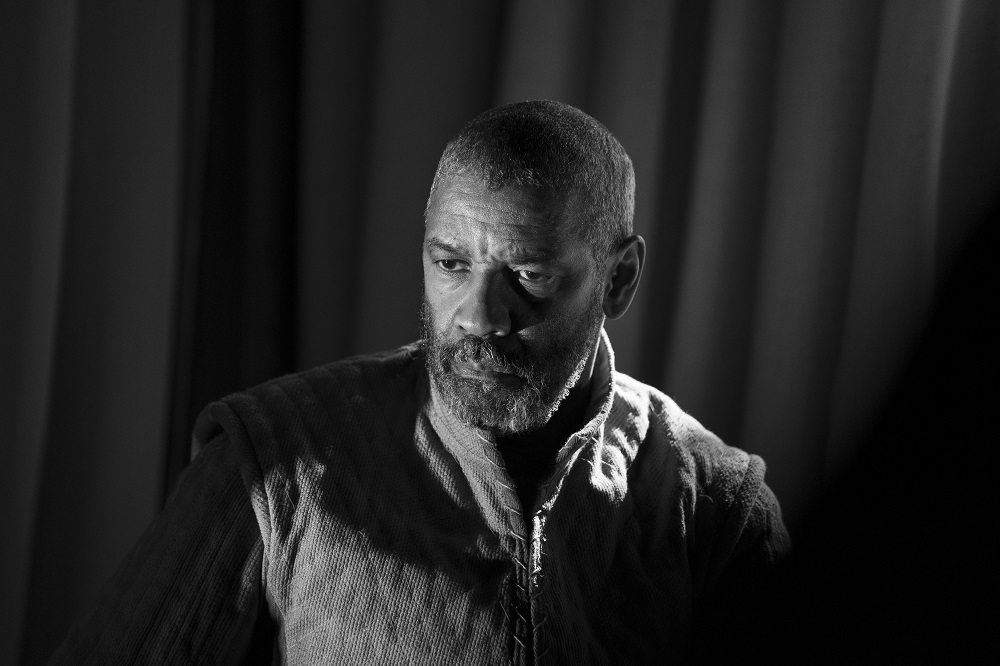The Tragedy of Macbeth

Denzel Washington stars in THE TRAGEDY OF MACBETH. (Photo: A24)
Shakespeare aficionados will know that The Tragedy of Macbeth has a redundant title, but this fresh and vibrant film adaptation never feels like a retread.
This atmospheric, black-and-white interpretation from Oscar-winning director Joel Coen is haunting yet quirky. It retains the spirit of the source material while darkening the tone and sharpening the focus to exhilarating effect.
“So foul and fair a day I have not seen,” ominously begins the narration of Macbeth (Denzel Washington), a Scottish general whose latest battle triumph for the beleaguered king (Brendan Gleeson) leads to aspirations for greater political influence — after a persuasive push from three witches and his sidekick, Banquo (Bertie Carvel).
Back home, Macbeth’s wife (Frances McDormand) is less patient than her husband, concocting a scheme to take the throne by bloody force. Gaining his position of authority by such illicit means, however, prompts a downward spiral exacerbated by a confrontation with Scottish lord Macduff (Corey Hawkins), who’s loyal to Macbeth’s predecessors.
The Tragedy of Macbeth showcases the synchronized vision of three artists known for their audacity and versatility, including the husband-and-wife duo of Coen (working without his brother and usual collaborator Ethan this time) and McDormand.
Washington’s raw and deeply felt portrayal balances strength and vulnerability as the antihero driven to madness and malevolence, burdened by a crumbling marriage and perceived threats of betrayal that undermine his quest for power.
McDormand underplays Lady Macbeth without sacrificing her passion or influence as a behind-the-scenes manipulator. The rest of the diverse ensemble cast is excellent, too.
Shrouding the story in fog and shadows to exacerbate a mood of desperation and despair, Coen’s version is relentlessly downbeat — even by Macbeth standards — and not for all tastes.
Stripping the story down to its most essential elements, Coen’s screenplay contains some gimmicky indulgences — the repeated use of bird symbolism is dizzying — and hollows some of the narrative intrigue.
Brooding and introspective, this reimagining evocatively complements Shakespeare’s iambic pentameter with unsettling visuals (employing a narrow aspect ratio) and intimate closeups that accentuate body language, subtle glances, and facial expressions among its tormented characters.
With its thematic depth punctuated by outbursts of brutal violence, the film enables moviegoers to sense the pain and anguish on screen without feeling it themselves.
Rated R, 105 minutes.